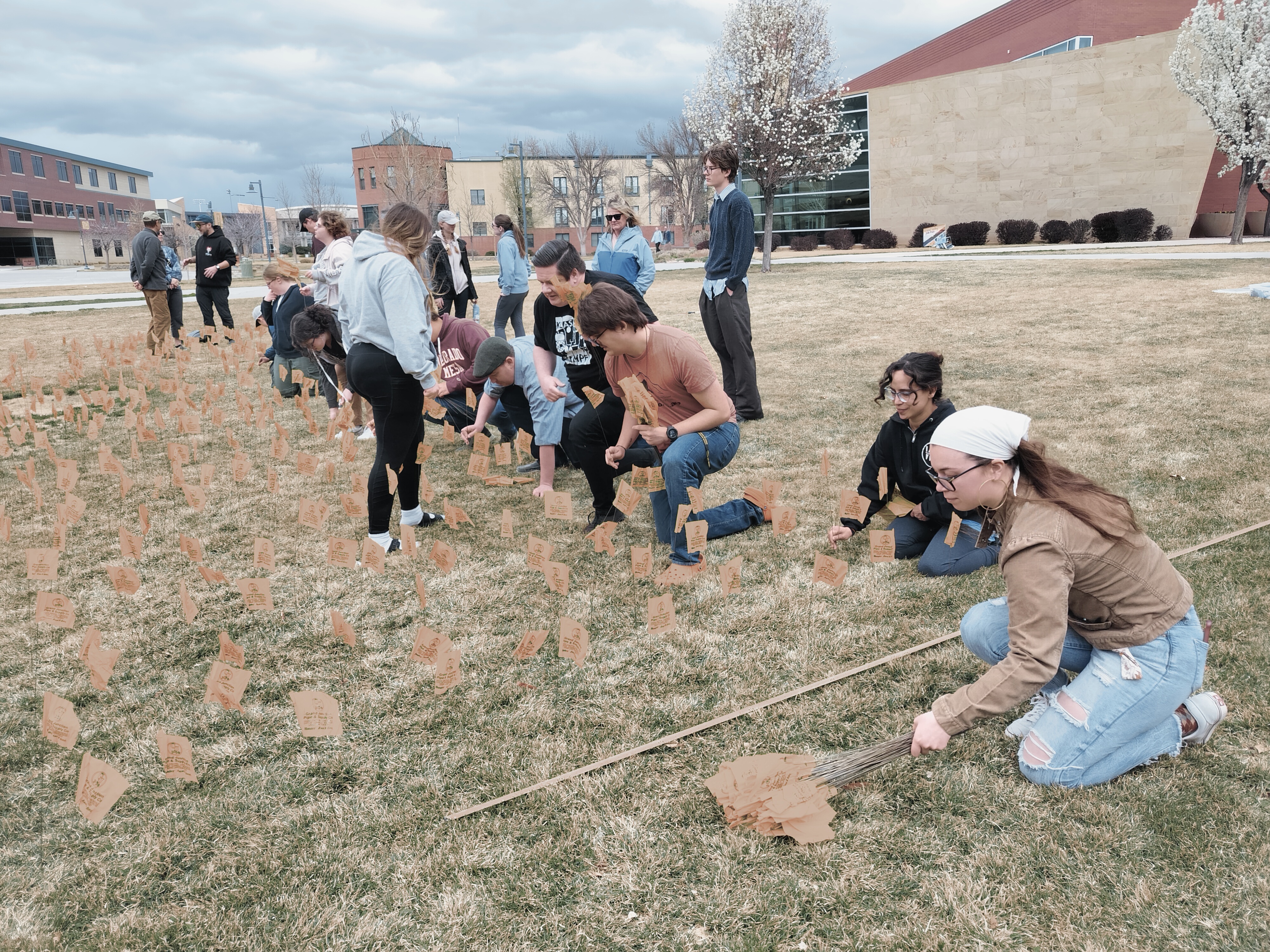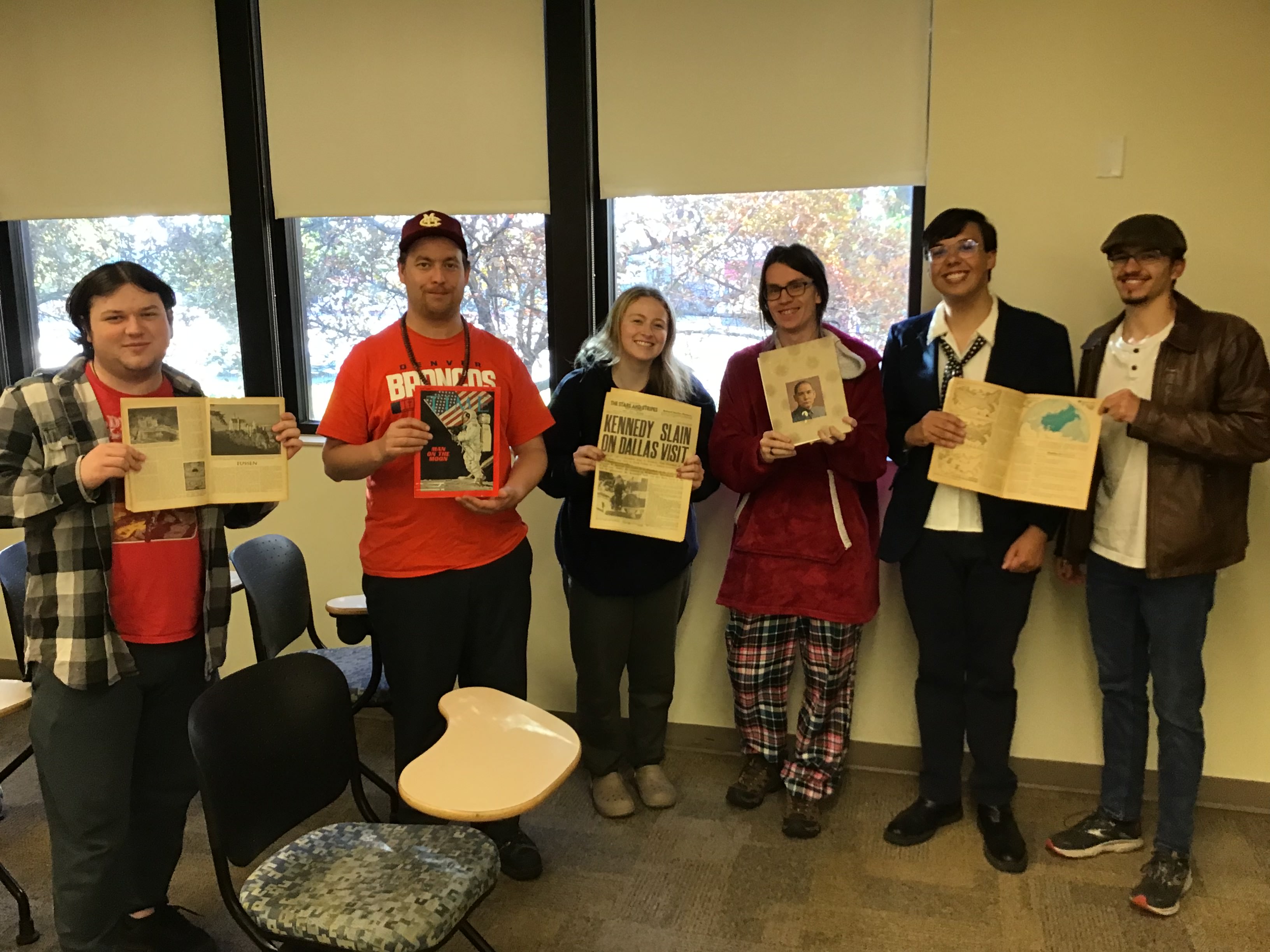Join us for the Phi Alpha Theta 2026 Regional Conference on April 11, 2026, hosted by Colorado Mesa University. This one-day conference brings together students and scholars to share research, exchange ideas and celebrate historical inquiry across fields and time periods. Don’t miss the opportunity to present your work, connect with fellow historians, win awards and engage in thoughtful discussion. Please register by March 12. We look forward to seeing you at CMU!
Sometimes the past inspires us; sometimes it haunts us. If the past captivates you in any capacity, you might consider a degree in history. Studying history promises more than a greater familiarity with bygone eras and personalities. Often defined as the critical study of change over time, history can help you develop a better understanding of contemporary society and culture through a study of the past. Our program covers a considerable amount of ground, offering a variety of courses on American, European, and World History. Additional advanced courses focus on specific topics ranging from “Ancient and Medieval Cities” and “Modern Warfare” to “Environmental History” and “The History of Sexuality.” Our program teaches students how to critically analyze sources, synthesize information, and make compelling arguments. These skills can prove useful in many endeavors. Students also have the opportunity to work closely with faculty members on research projects, in addition to holding internships at local and regional museums, historical societies, and public agencies.
We offer four degree options: a BA in history, a BA in history with a secondary teaching concentration, a minor in history, and a minor in public history.
History majors and primary sources in HIST 202: Introduction to Historical Research
Career Opportunities
A history degree represents more than the ability to memorize facts. It represents a passion for learning that lasts a lifetime. But what can you actually do with a history degree?
Studying history teaches students how to think for themselves, to analyze the works of others with objectivity and sensitivity, and to improve their ability to express themselves in oral and written form. These are skills that are widely applicable to most professions. As a program of study, history also enhances literacy, promotes tolerance, develops moral awareness, and deepens our understanding of national and global issues. These aptitudes will serve you well in many careers, in addition to making you a better person.
According to the American Historical Association (AHA) there are many things that students can do with a history degree: advertising executive, analyst, archivist, broadcaster, campaign worker, consultant, congressional aide, diplomat, editor, foundation staffer, information specialist, intelligence agent, journalist, legal assistant, librarian, lobbyist, personnel manager, public relations staffer, researcher, and teacher. For some excellent AHA resources on history careers, click here.
Faculty
Our history professors all hold doctorates in their fields. Several are award-winning educators, and all of them are active teacher-scholars with ambitious research agendas. Their ongoing work and growing list of publications confirms that history is an active discipline, and that teaching and scholarship go hand-in-hand. Our full-time faculty include the following professors:
ERIKA JACKSON (2010), Professor of History; BA, Michigan State University; MA, Loyola University; PhD, Michigan State University. Interests: Late 19th and Early 20th Century American History, Women's and Gender History, History of Sexuality, Immigration and Ethnic History, Urban History, Labor History
KATHLEEN ROSE KING (2025), Assistant Professor of History; BA (History), University of Colorado-Boulder; BS (Journalism), University of Colorado-Boulder; MA (Curriculum & Instruction) University of Colorado-Colorado Springs; MA (History) University of Colorado-Boulder; PhD, University of Colorado-Boulder. Interests: intellectual, social, cultural, and political history of early America
PAMELA KRCH (2018), Instructor of History; BA, Mesa State College; MA, New Mexico State University; PhD, University of Texas at El Paso. Interests: Twentieth-century United States, including the American West; Borderlands; Native American with an emphasis on twentieth century and Navajo history; and Public History.
DOUGLAS O’ROARK (1994), Professor of History; BA, MA, PhD, The Ohio State University. Interests: Social History of the Greek, Roman, and Early Byzantine Cultures, Classical Archaeology
VINCENT V. PATARINO, JR. (2011), Associate Professor of History; BA, BS, MA, PhD, University of Colorado-Boulder. Interests: Social and Cultural History of Early Modern England and Europe, Gender History, Religious History, Age of Discovery, Medieval and Early Modern English Sailors, European History and Film
ADAM T. ROSENBAUM (2011), Professor of History; BA, Virginia Wesleyan College; MA, Old Dominion University; PhD, Emory University. Interests: Cultural History of Modern Germany and Europe, the Cold War, Nationalism and Regionalism, History of Travel, History of Professional Wrestling
TIMOTHY C. WINEGARD (2012), Associate Professor of History; BA, University of Western Ontario; BEd, Nipissing University; MA, Royal Military College of Canada; PhD, University of Oxford. Interests: Military History, Global Indigenous Peoples and Cultures, North American Colonial History, the Comparative History of British Settler-Societies
Click the video below to watch Dr. Erika Jackson discuss the “Problem of Historical Analogies.”
Get Involved
In addition to rigorous classroom study and research based upon critical thinking, history students participate in a variety of programs that transcend the classroom.
Each spring, many history students serve as judges during the annual History Day, a national competition that provides students in grades 6-12 with an exciting way to learn about historical issues, ideas, people, and events.
Students also participate in the annual Holocaust Awareness Series, an interdisciplinary series of events that explores the topic of genocide.
Finally, many of our history students are members of the local chapter of Phi Alpha Theta, the national honor society that provides leadership opportunities and the chance to present original historical research.

Students plant flags to commemorate Holocaust victims for CMU's Annual Holocaust Awareness Week
Graduates of this major will be able to:
- Formulate the relationships of cause and effect in history (specialized knowledge/applied learning);
- Assess the importance of historical context (specialized knowledge/applied learning);
- Critically analyze an argument based on secondary sources (critical thinking/information literacy);
- Critically analyze primary sources (critical thinking);
- Formulate a clear and persuasive argument based on historical evidence (communication fluency/Information literacy);
- Construct a clear thesis with strong topic sentences (communication fluency);
- Evaluate how local, national, or global societies have responded to ethical, social, civic and/or environmental challenges in the historical past (personal and social responsibility).

